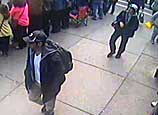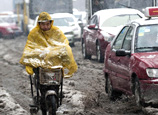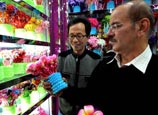
BEIJING, April 19 (Xinhua) -- China's foreign exchange regulator said Thursday that Chinese banks bought more foreign currency from clients than they sold in March, marking a foreign exchange surplus from bank-to-client transactions for a seventh consecutive month.
Individuals and institutions exchanged 152.2 billion U.S. dollars in foreign currency for yuan through Chinese banks while buying 107.6 billion U.S. dollars in foreign currency from financial institutions in March, data from the State Administration of Foreign Exchange (SAFE) show.
The banks' March foreign exchange surplus, which stood at 44.6 billion U.S. dollars, was almost unchanged from the February figure and down from 92.6 billion U.S. dollars in January.
It was the seventh straight month for Chinese lenders to see a foreign exchange surplus, according to SAFE data.
Ding Zhijie, head of the School of Banking and Finance at the University of International Business and Economics (UIBE), said enterprises and institutions have been selling foreign exchange on hand since market expectations for the yuan to appreciate surged again in September.
Bank-to-client foreign exchange transactions are a source of fluctuations in China's foreign exchange reserve, but the figures are not equated with foreign exchange reserve data, analysts said.
On April 11, the central bank announced that China's outstanding foreign exchange reserves stood at 3.44 trillion U.S. dollars at the end of March, up 130 billion U.S. dollars from that of the end of last year. The quarterly growth was equivalent to the full-year growth in 2012.
Zhao Qingming, a senior analyst with China Construction Bank, said that due to China's strict control over the capital account, some international capital has flowed into or out of the country through trade or current account items.
Those capital flows may assume certain characteristics of arbitrage, but are not technically so-called "hot money," according to Zhao.
Such capital flows, which are greatly affected by trends in foreign exchange rates, will not enter the capital market on a large scale to push up asset value, Zhao said.
Beijing Normal University professor Cai Hongbo said the Chinese yuan has limited room for further appreciation in the short term, warning of volatility in the financial market caused by reversed market expectations for the yuan to devaluate.
















 Young rangers patrol railway line
Young rangers patrol railway line


![]()
